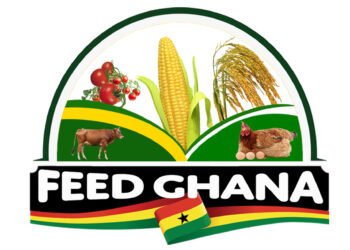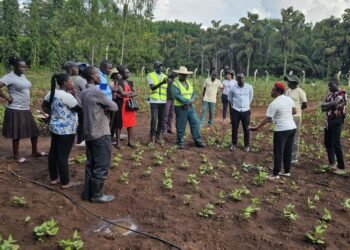The President of the Peasant Farmers Association of Ghana (PFAG), Mr. Charles Nyaaba, has sounded an urgent alarm over the fate of rice farmers in the northern part of the country, revealing that nearly 200,000 metric tons of locally produced rice remain unsold.
He described the situation as catastrophic for farmers who continue to bear the brunt of rising costs, limited market access, and government inaction.
Mr. Nyaaba explained that both paddy and milled rice from the 2024 farming season remain stacked in warehouses across the northern regions, worsening the financial distress of smallholder farmers. With the 2025 harvest season underway, he warned that the crisis could escalate into large-scale losses if immediate interventions are not made.
“For those that I know of, we are talking not less than 200,000 metric tons of rice unsold,” he stated, lamenting the magnitude of the problem and its impact on livelihoods.
The PFAG President appealed to the government to urgently release funds to the National Food Buffer Stock Company (NAFCO) to purchase the surplus produce, as earlier promised by the Ministry of Food and Agriculture.

“This time around, we are not asking the government to subsidise fertiliser this year. Our appeal is simple because right now, it is about life and death for farmers – so we want the government to urgently, especially through the Minister of Finance, release money for the purchase of the rice”
Mr. Charles Nyaaba, President of the Peasant Farmers Association of Ghana
He emphasised that for a direct and timely response to prevent total financial collapse among smallholder producers, government intervention should be free from procurement bottlenecks or the influence of middlemen, stressing that the rice should be purchased directly from farmers and millers who already have the capacity to supply and store large quantities.
“We don’t expect the National Food Buffer Stock Company to go out and get procurement for people to go book and lobby to get those contracts and start importing again,” Mr. Nyaaba stressed, maintaining that a direct transaction approach would ensure that the intended beneficiaries – local farmers – receive the full value for their produce, while also helping to stabilise the local rice market.
Importation and Smuggling
The PFAG President linked part of the unsold rice problem to the continuous inflow of imported rice and the unchecked smuggling of foreign brands across Ghana’s borders. He lamented that despite local farmers meeting production targets and improving quality, the dominance of imported rice continues to suppress local demand.

Mr. Nyaaba therefore called for a “temporary ban,” on rice importation to allow the domestic market to recover and for a clampdown on illegal border activities.
“The government should ensure that security agencies and customs officials at the borders tighten their work,” he said, urging the state to intensify patrols – preventing the influx of foreign rice through unauthorised routes.
The unsold rice and its accompanying challenges, according to the PFAG, has left many farmers unable to repay loans or reinvest in the current planting season. Mr. Nyaaba explained that the inability to sell their produce has forced several farming communities into debt, threatening livelihoods and food security in the northern regions.
The Association fears that if no decisive action is taken, farmers may abandon rice cultivation altogether, undermining Ghana’s goal of achieving self-sufficiency in rice production.
The PFAG reiterated that local farmers have demonstrated both capacity and commitment to produce at scale but continue to face structural challenges due to weak market linkages and inadequate government support.
The Association further noted that the current crisis calls for an integrated national response that includes funding support, market access reforms, and stricter control of imports, insisting that with the right policies, Ghana can reduce its dependence on imported rice and create sustainable livelihoods for rural farmers.

As the harvest season continues, the Association warned that failure to purchase the existing 200,000 metric tons of rice will not only cripple smallholder producers but also undermine confidence in the agricultural sector, which remains central to Ghana’s economy.
READ ALSO: Voting Underway in Tanzania’s Presidential and Parliamentary Elections






















